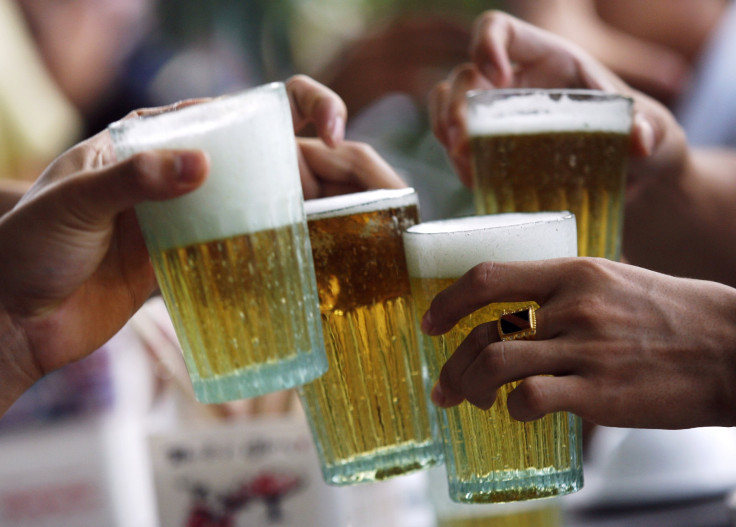Love Hormone Oxytocin Mimics The Effects Of Alcohol

A study published in Neuroscience and Biobehavioral Reviews has concluded that the “love hormone” oxytocin has a dark side to it. The researchers at the University of Birmingham established that there are significant similarities between the behavioural effects of oxytocin and alcohol while saying that the effects of oxytocin on the body has more semblance with that of alcohol than previously thought.
Widely dubbed the love hormone, oxytocin is a neuropeptide hormone produced in the hypothalamus region of the brain, and it is transported to and secreted by the posterior pituitary gland, which is located at the base of the brain. It functions as both a hormone and as a brain neurotransmitter. It regulates two important female reproductive functions, childbirth and breastfeeding.
The research in recent years further indicates the role of the hormone in social interactions and response to romantic feelings. It is also responsible for behaviours such as altruism, empathy, willing to trust and generosity on social foregrounds. Oxytocin also suppresses the action of prefrontal and limbic cortical circuits, thereby reducing the effects of social inhibitors such as fear, anxiety and stress.
Dr Ian Mitchell from the School of Psychology at the University of Birmingham, while exploring the effects of both oxytocin and alcohol, found incredible similarities between the two compounds. He explains that although alcohol and oxytocin targets different receptors within the brain, these cause common actions on GABA transmission in the prefrontal cortex and the limbic structures, the areas of brain responsible for deciding the perception of stress or anxiety in social situations. The study co-author , Dr Steven Gillespie from School of Psycohology at University of Birmingham adds, "The idea of 'Dutch courage' or having a drink to overcome nerves is used to battle those immediate obstacles of fear and anxiety. Oxytocin appears to mirror these effects in the lab."
On nasal administration, the researcher observed that effects of oxytocin closely mimics the well-established effects of alcohol consumption. The findings have raised concerns regarding the less desirable socio-cognitive effects that both alcohol and oxytocin can invoke in the body, and hence, the researchers warn against self-medicating either of them in difficult situations.
Gillespie concludes by saying that, "I don't think we'll see a time when oxytocin is used socially as an alternative to alcohol. But it is a fascinating neurochemical and, away from matters of the heart, has a possible use in treatment of psychological and psychiatric conditions. Understanding exactly how it suppresses certain modes of action and alters our behaviour could provide real benefits for a lot of people. Hopefully this research might shed some new light on it and open up avenues we hadn't yet considered."
To contact the writer, email:ruchira.dhoke@gmail.com





















